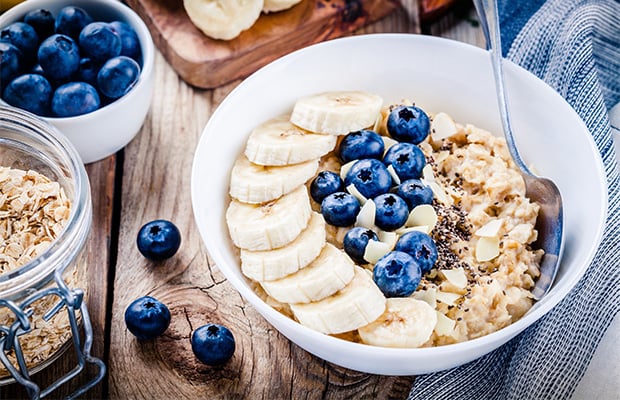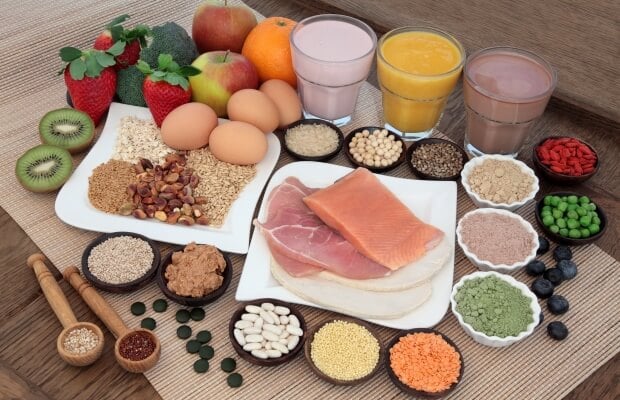BHF dietitian Victoria Taylor says:
The good thing about including protein in your breakfast is that it can help you to feel more satisfied, so could help you to be less tempted to snack mid-morning. Being aware of the protein in all your meals can be helpful if you’re trying to lose weight or maintain a healthy weight, but this doesn’t need to mean a high-protein diet, unless this is what works for you.
Most of us are getting the recommended amounts of protein, partly because there is protein in more foods than you might think, including in breakfast foods like wholemeal bread and bran flakes. But if you do want more protein, there are better sources, such as eggs, baked beans and low-fat (unsweetened) yoghurt.
Making your porridge with milk instead of water or having a poached or boiled egg instead of jam on your toast will increase the amount of protein you’re eating. Try not to regularly eat processed protein foods such as bacon and sausages (and vegetarian alternatives), smoked salmon and other smoked fish, as these may be high in salt and sometimes saturated fat too.
 Meet the expert
Meet the expert
Victoria Taylor is a registered dietitian with twenty years’ experience. Her work for the NHS focused on weight management and community programmes for the prevention of cardiovascular disease. At the BHF she advises on diet and nutrition.
What to read next...







 Meet the expert
Meet the expert

